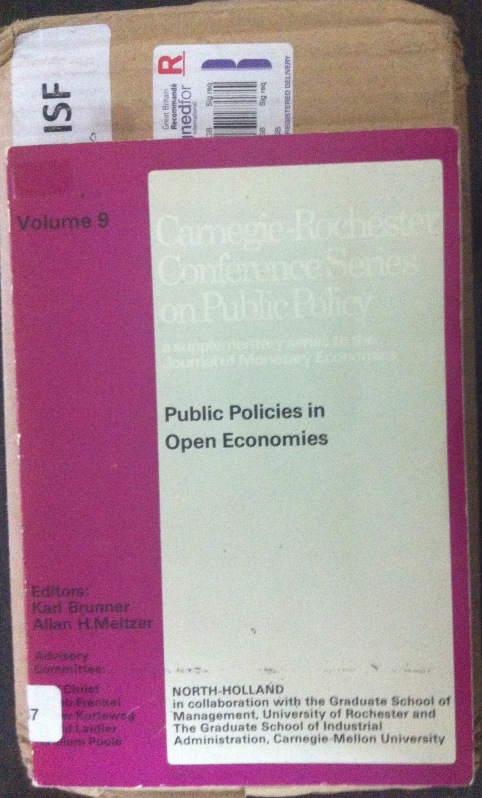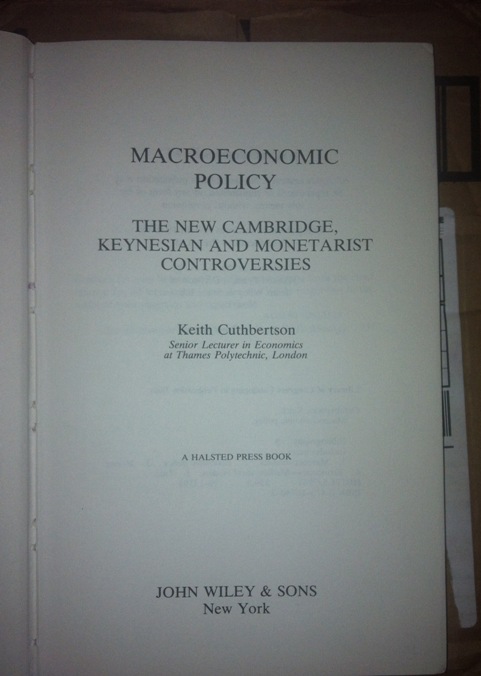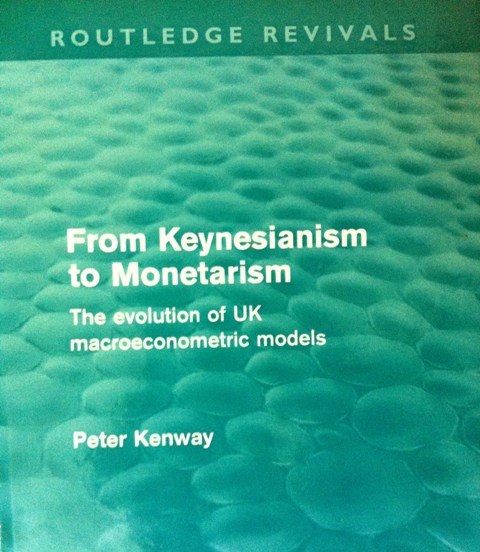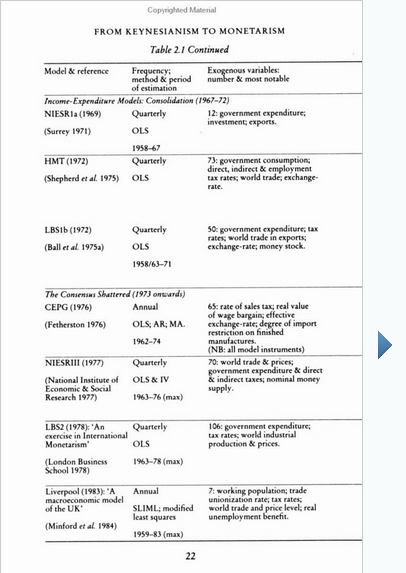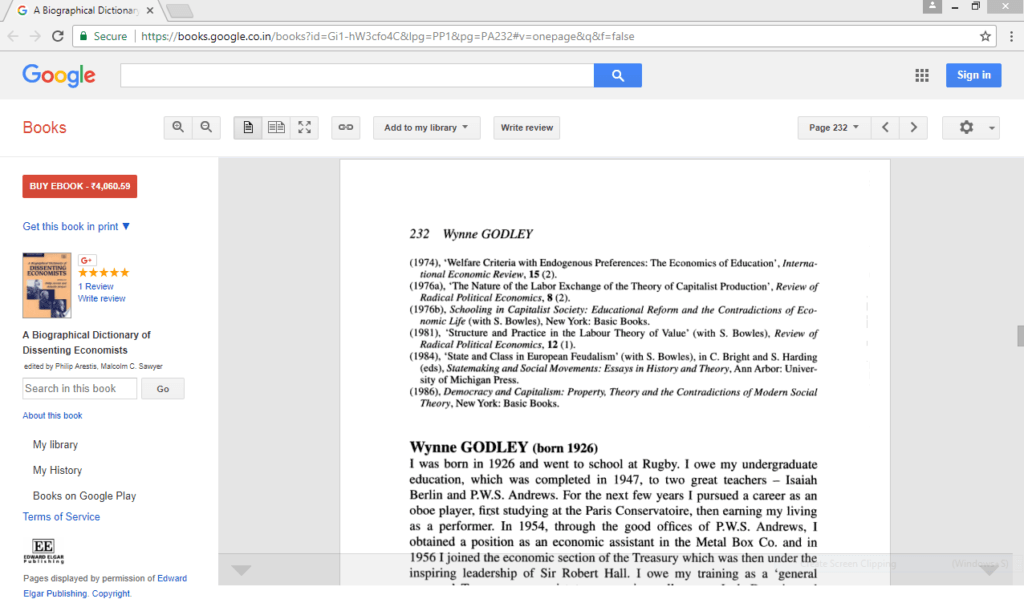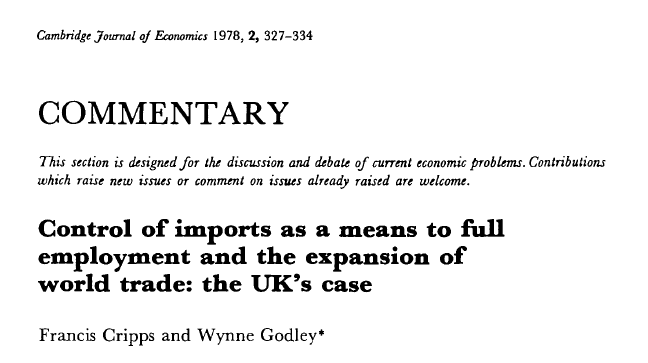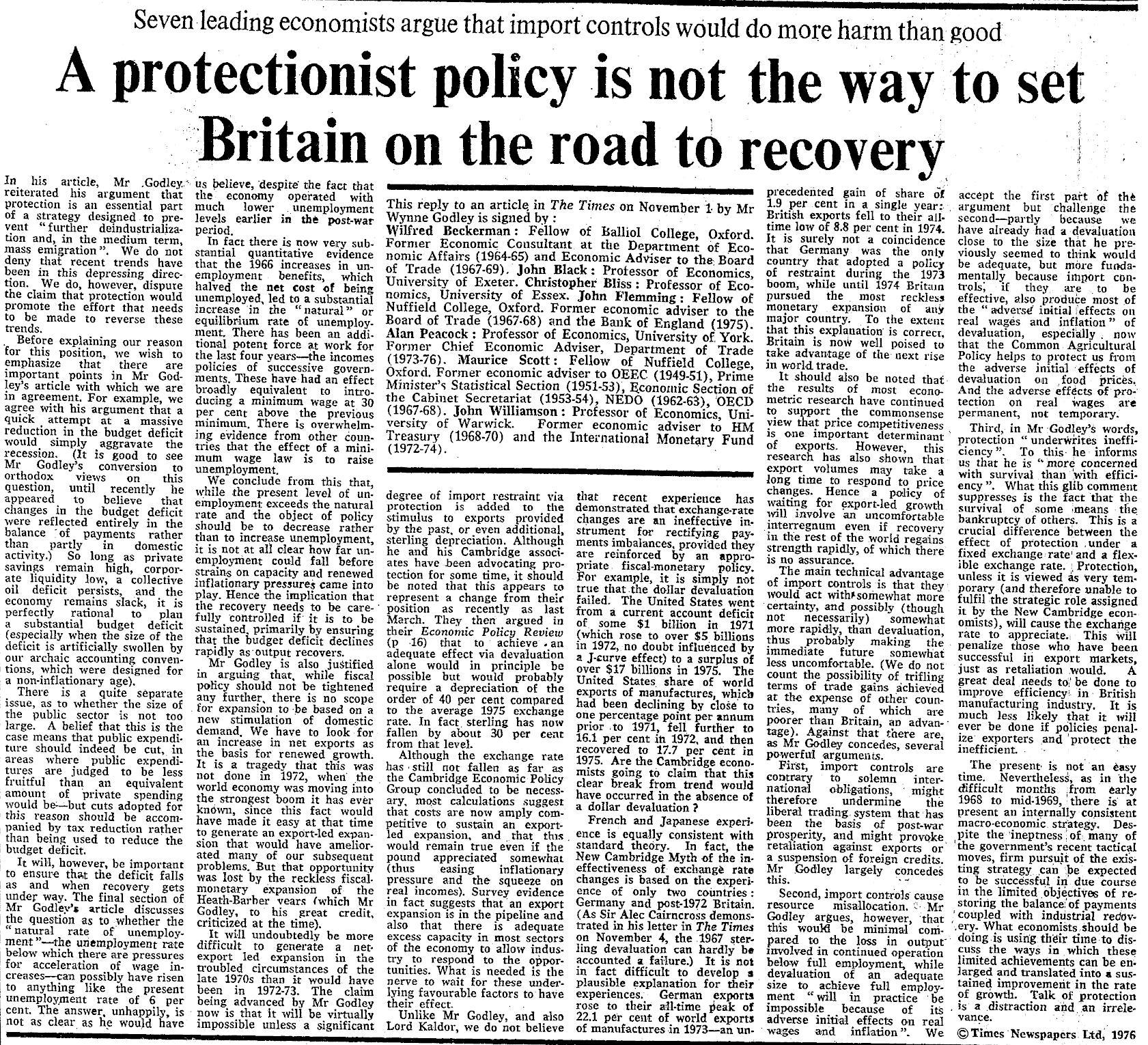The crisis has a lot of connections with the way Macroeconomics was done in the 1970s and this interests me a lot. Of course the equally important reason was that Nicholas Kaldor and Wynne Godley were highly involved in the public discussions. Here are some books I collected which have special importance to the Cambridge Economic Policy Group (CEPG):
I could manage to only get used copies of the first two books.
The book has the paper New Cambridge Macroeconomics And Global Monetarism – Some Issues In The Conduct Of U.K. Economic Policy, by Martin Fetherston and Wynne Godley and comments by others such as Alan Blinder – which I mentioned in the post Debt Monetization. The book is also available from Wiley but you have to pay $500+ for it!
This one got the title right – it wasn’t Keynesianism versus Monetarism. It was New Cambridge versus Keynesianism versus Monetarism.
The following book by Peter Kenway was first published in 1994 but was republished recently because the crisis has deep roots with debates in the 1970s!
It has nice discussions about the various types of income/expenditure models of the 1970s in the UK with a lot on the CEPG. It gives nice lists of all models – some of them here (via amazon.com preview):
Here’s a short autobiography by Wynne Godley (written around 1999) on how he dissented from the profession. Here’s a Google Books preview from the book A Biographical Dictionary of Dissenting Economists edited by Philip Arestis and Malcolm C. Sawyer
click to view on Google Books
I like this:
… I had extraordinary difficulty in understanding, not the sentences, but what real life state of affairs mainstream ‘neoclassical’ macroeconomics could possibly be held to be describing. I went through the standard textbooks on macroeconomics and then back to the underlying professional literature (the locus classicus being, as I now see it, Modigliani. 1944 and 1963). I taught myself how to draw the diagrams and solve the equation systems, but for years could not make any connection between these and the real world as I knew it…
One of the things which made Godley dissenting was the proposal to control imports as the paper title suggests:
(click for link to the journal)
This was met with huge hostility as a Times article (from the late 70s) shows. Economists confused it as “selective protectionism”:
(click to enlarge and click again)
